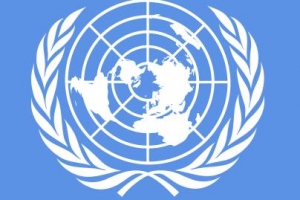UN Convention on the Rights of the Child and its application in Italy
New York Convention of 1989 on the Rights of the Child.

The United Nations Convention on the Rights of the Child, signed in New York on 20 November 1989, entered into force in Italy with Law no. 176 of May 27, 1991.
For the purposes of the Convention, a child means every human being below the age of eighteen years unless, under the law applicable to the child, majority is attained earlier.
States Parties shall respect and ensure the rights set forth in the present Convention to each child within their jurisdiction without discrimination of any kind, irrespective of the child's or his or her parent's or legal guardian's race, colour, sex, language, religion, political or other opinion, national, ethnic or social origin, property, disability, birth or other status. States Parties shall take all appropriate measures to ensure that the child is protected against all forms of discrimination or punishment on the basis of the status, activities, expressed opinions, or beliefs of the child's parents, legal guardians, or family members.
In all actions concerning children, whether undertaken by public or private social welfare institutions, courts of law, administrative authorities or legislative bodies, the best interests of the child shall be a primary consideration.
States Parties recognize that every child has the inherent right to life. States Parties shall ensure to the maximum extent possible the survival and development of the child.
The child shall be registered immediately after birth and shall have the right from birth to a name, the right to acquire a nationality and, as far as possible, the right to know and be cared for by his or her parents.
States Parties undertake to respect the right of the child to preserve his or her identity, including nationality, name and family relations as recognized by law without unlawful interference. Where a child is illegally deprived of some or all of the elements of his or her identity, States Parties shall provide appropriate assistance and protection, with a view to speedily re-establishing his or her identity.
States Parties shall ensure that a child shall not be separated from his or her parents against their will, except when competent authorities subject to judicial review determine, in accordance with applicable law and procedures, that such separation is necessary for the best interests of the child. Such determination may be necessary in a particular case such as one involving abuse or neglect of the child by the parents, or one where the parents are living separately and a decision must be made as to the child's place of residence.
States Parties shall assure to the child who is capable of forming his or her own views the right to express those views freely in all matters affecting the child, the views of the child being given due weight in accordance with the age and maturity of the child.
For this purpose, the child shall in particular be provided the opportunity to be heard in any judicial and administrative proceedings affecting the child, either directly, or through a representative or an appropriate body, in a manner consistent with the procedural rules of national law.
States Parties shall take measures to combat the illicit transfer and non-return of children abroad.To this end, States Parties shall promote the conclusion of bilateral or multilateral agreements or accession to existing agreements.
For more details, please see also:
International Lawyers for Child Abduction
Child Custody Disputes in Italy
The International Child Abduction in EU countries
Hague Convention on the Civil Aspects of International Child Abduction
The member countries of Hague Convention of 1980
For more information, please contact Lawyers in Italy
The use of this content is permitted only by indicating source (link) and author

 Offices
Offices


